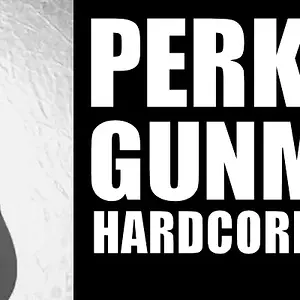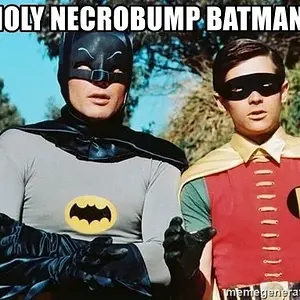Roger Ebert
Registered

During the Super Bowl broadcast of 1984, Apple debuted one of the most innovative and spectacular commercials ever made: Ridley Scott's ad for the then-brand new MacIntosh home computer. It showed an auditorium full of lifeless human drones staring at a dictator-like figure ranting on a giant screen, followed by an athletic blonde woman (the only splash of color in the scene) bursting through the doors and hurling a hammer into the screen, symbolically destroying the oppressor.
Forty years later, Apple CEO Tim Cook took to social media to debut an ad for "iPad Pro: the thinnest product we’ve ever created, the most advanced display we’ve ever produced, with the incredible power of the M4 chip. Just imagine all the things it’ll be used to create."
The tonal opposite of the company's most famous advertisement, it shows a stack of creative tools and imaginative objects being crushed in a giant metal press.
Cher sings "All we ever need is you" as the device destroys some of the most beautiful objects a creative person could ever hope to have, or see: a trumpet, camera lenses, an upright piano, paints, a metronome, a clay maquette, a wooden anatomical reference model, vinyl albums, a frame photo, and most disturbingly (because they suggest destructive violence against children's toys, and against the child in all of us) a ceramic Angry Birds figure and a stack of rubber emoji balls.

You've heard the phrase "They said the quiet part out loud", right? Well, that's what this ad is doing.
And it's not just speaking in room tones. It's practically crowing its happiness at the destruction of artists, their tools, and their process.
Look at how the wooden figurine bends beneath the weight of the press, and how the paint cans explode and spray their contents against the lens like blood in a graphic horror film. Look at the grotesque way the destruction of the musical instruments and camera lenses are fetishized, metal buckling, glass shattering. They even made sure to put one of the emoji toys right on the edge of the press so that when the pressure bears down on it, we see its eyes bulge and then pop out. This ad doesn't just show destruction. It delights in it.
When the press has stopped crushing things, the music cuts out and is replaced by eerie silence. This is a technique that movies use to summon audience unease after a character has been violently killed.
Then the press raises to reveal a thin computer pad that (one supposes) replaces all of the items that we just saw being destroyed. All we ever need, or something like that.
You can tell yourself that the items on that metal press are "only stuff "and that their eradication doesn't mean anything. But if you do, it means you've never had a violent person destroy something you loved as a way of telling you "You're next," which in turn means you are a person who lacks imaginative empathy and should've kept quiet.
This is a disturbing, shocking ad, not just because of what it shows but because of its seeming obliviousness to the subtext that it turns into text, as well as the message it sends to every artist alive: the tech industry will crush you, destroy you; suddenly, violently, all at once.
The rebel warrior with the hammer smashing the established order has been superseded by another Big Brother.
The ad arrives amid a continued furor over the ethical, moral and copyright implications of "Generative AI," which is a cool-sounding name for plagiarism software. This so-called "intelligence" is not intelligent but crudely imitative.
Contrary to what its industry boosters (and their simps) keep trying to tell us, its relationship to the history of human creativity is not at all like the relationship between a flesh-and-blood art student studying a book of Rembrandt paintings or a budding trumpeter playing along with Miles Davis. It's more like the relationship between the tripods in Steven Spielberg's "War of the Worlds" and the people that they suck up into their bellies, shred into gory paste, and spray onto their crops, as a kind of mulch. All of variants of Gen AI were "trained" over the course of many years by "scraping" of artwork by creative humans, past and present. None of them were consulted or asked to opt-in, much less compensated for their labor. It's theft of intellectual property as well as intellectual labor (and in some cases physical labor; it takes time and material to make a film, a TV show, an album, a painting, a sculpture, etc.) on a scale never dreamt of before.
"Move fast and break things" was the motto of Facebook until ten years ago, and continues to drive the tech industry, as well as venture capitalists and hedge funds who have no morals, and don't care about anything but shareholder value and executive bonuses.
These are people who look for ways to siphon off money from transactions that didn't need additional middlemen to function, and who create services that shatter existing industries so quickly that the law can't catch up with regulation, and brag about "disruptors" while unemployment lines swell.
This ad breaks things. But it doesn't move fast. It moves slowly, like the monsters in John Carpenter films, out of belief that the process is inevitable and none can stop it.
Is it true that no one can stop it? I guess we'll see. Most of the great tech fortunes of the last 25 years, from Napster to YouTube to Spotify and now Netflix (which tries to avoid paying royalties when possible) were built on crimes against artists and their work. Specifically: uncompensated yet monetized use, with profits flowing mainly to the company, its shareholders and its executives, not to the artists. This is a world where actors or musicians go on social media and show the royalty checks they've received for five or ten dollars for work that aired dozens or even hundreds of times on a streaming platform or got millions of plays on Spotify.
It's ugly to ally Apple's latest with that tradition. But not surprising, because Apple has always been part of it. They just have PR that has convinced people that they're somehow more sensitive and attuned to beauty than Microsoft or Dell.
Considering how many smart people work at Apple, and the sheer number of names and titles that had to have been involved in the chain of decisions that results in an ad like this being unveiled, one has to assume not that nobody over there thought about any of this stuff, but that they did and were too smug to care.
You can tell from the ad. It's celebratory, in the worst way.
It doesn't just say, reductively and falsely, "If you have this new device, which is really not too different from any other Apple iPad, just thinner, you'll never need anything else to be creative" (though I'm sure it's loaded with Gen AI plagiarism tools; everything is now).
No. It says, "All these beautiful objects and materials and tools that allowed humans to make art, or that inspired art, are being destroyed, smashed, pulped, to feed the tech industry."
Or, alternately, "If you have any of this stuff, take it to the dump, because we're gonna make sure there's no place for it in modern life anymore."
"Give me a reason to build my world around you," Cher sings, presumably to this iPad. Well, I guess one reason would be "we intentionally destroyed every other means of making art." But it's not one to brag about.
This is one of the most depressing ads I've ever seen in my life.
And it was completely unnecessary. Just one day earlier, Apple released a different ad that pushes the same product in a positive, non-disturbing way.
The metal press ad is, as they say, an "own goal."
Tim Cook, please prove you're a decent human being. Delete this monstrosity and announce an initiative to compensate artists for all the work that your company has used and is using to "train" its software and devices.
Then apologize to all the creative people who have ever used Apple products to make art.
You wouldn't exist without them.
Continue reading...







